In a world where food miles matter, an autumnal harvest dinner reduced the distance from farm-to-table to feet, not miles. What resulted was a celebration of the people and produce at the heart of Reunity Resources.
Reunity Resources and Their Farm Produce
It is possible to feel that there are few things – people, places, or organizations – that are purely good. Things that restore our faith in humanity and make us feel hope and pride in the world in which we live. But in the village of Agua Fria in Santa Fe, there is just that kind of place: Reunity Resources.
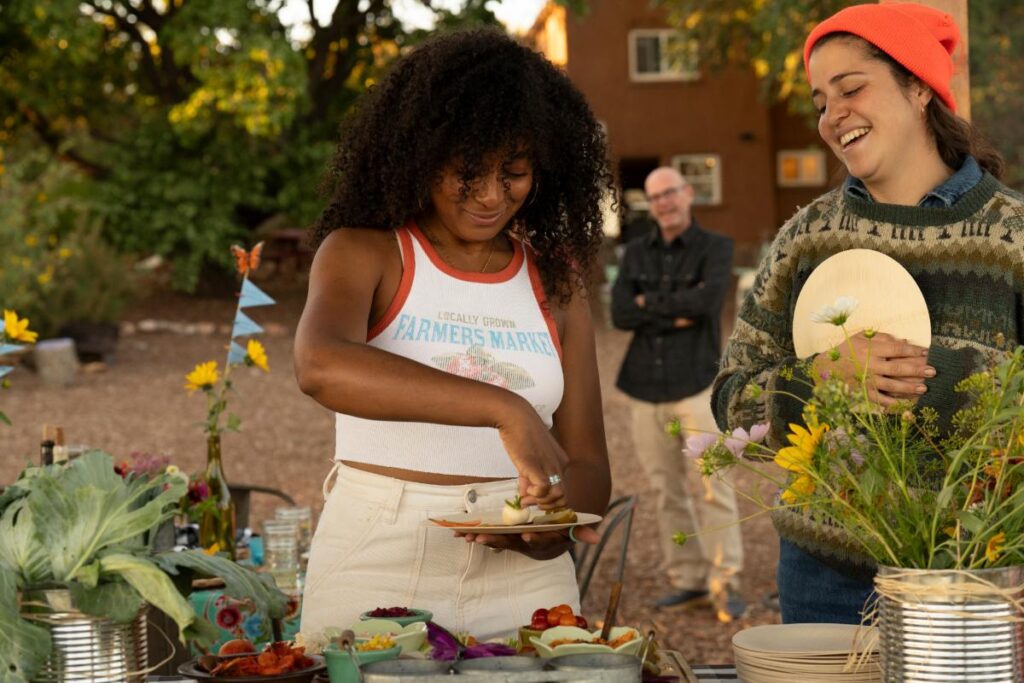
If you’ve been there – to pick up compost or fresh veggies from the farm stall, or to drop off your kitchen waste or your kids at the farm camp – then you know what I mean. If you haven’t been there yet, it’s a bit of heaven.
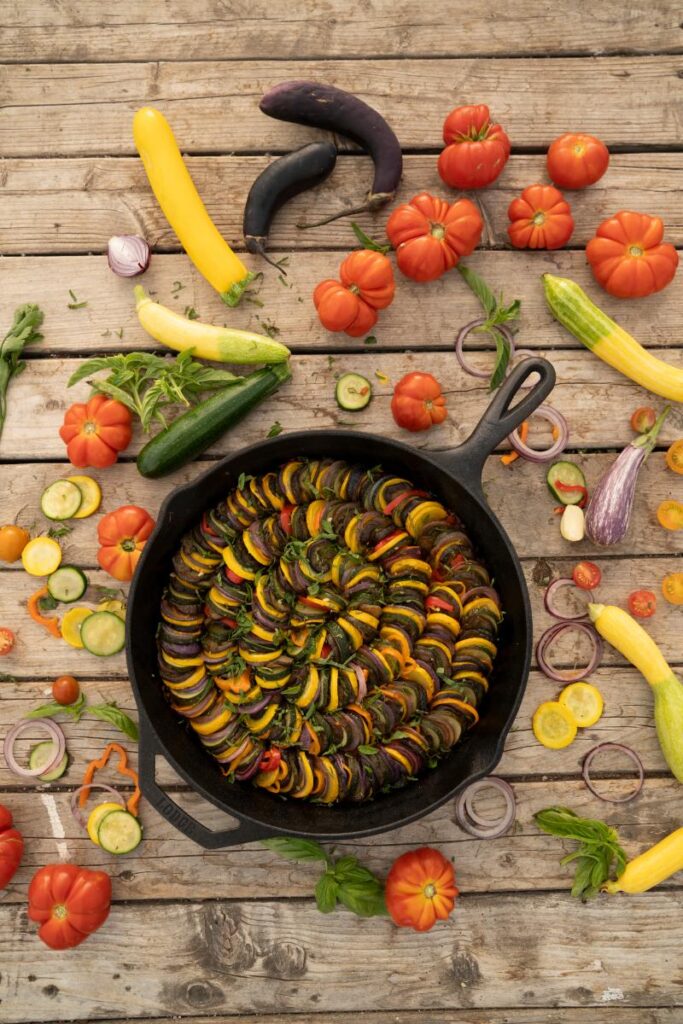
Juliana and Tejinder Ciano founded Reunity in 2011 with a goal to convert used fryer oil into biodiesel. The name comes from ‘reunite’ says Juliana, and it’s all about turning what’s considered waste into something that’s not.
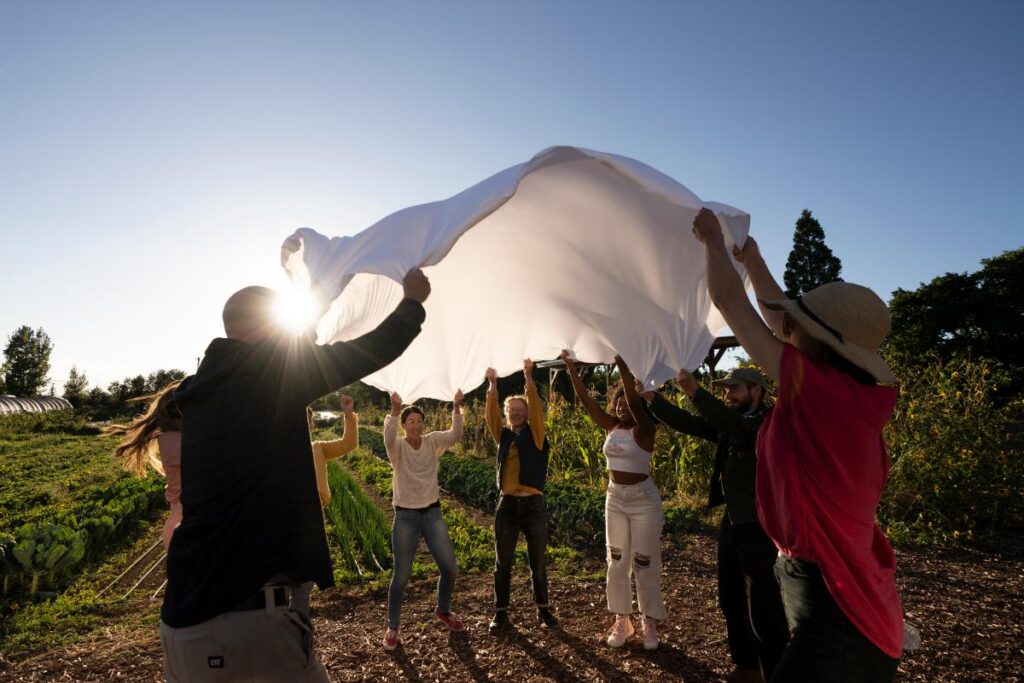
Starting a composting tradition
A few years later, they found a piece of disused farmland. A 99-year old gentleman owned it. He bought the property when he returned from World War II. When they shared their idea of setting up a composting operation, his face lit up and he gave them his blessing. They started collecting kitchen waste from restaurants and schools. They transformed something that would have ended up in the landfill into rich compost that nourishes the soil.
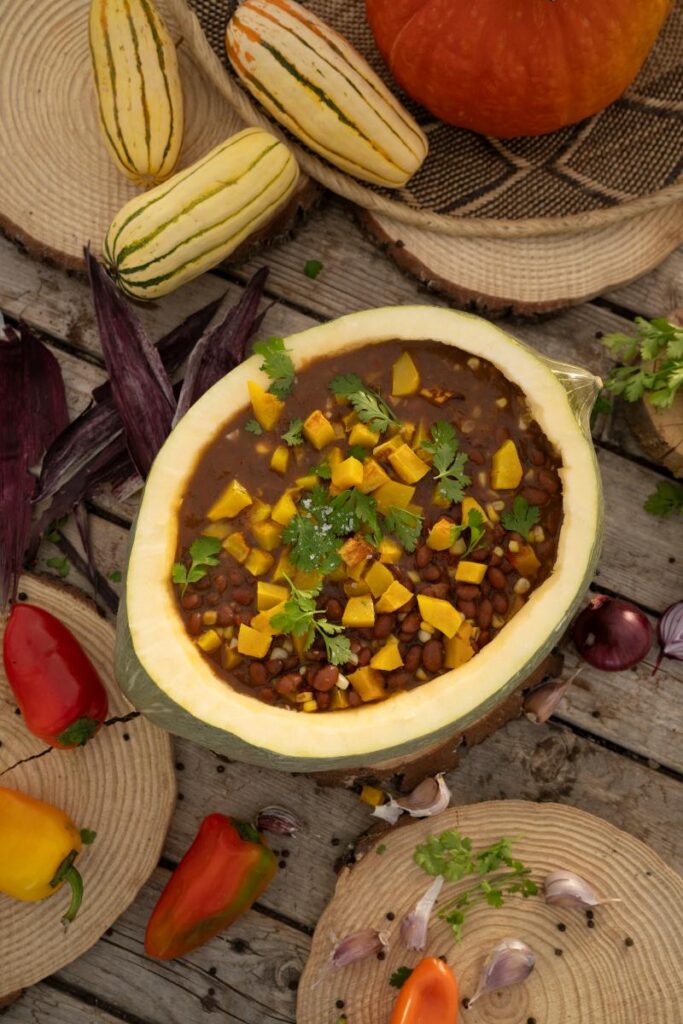
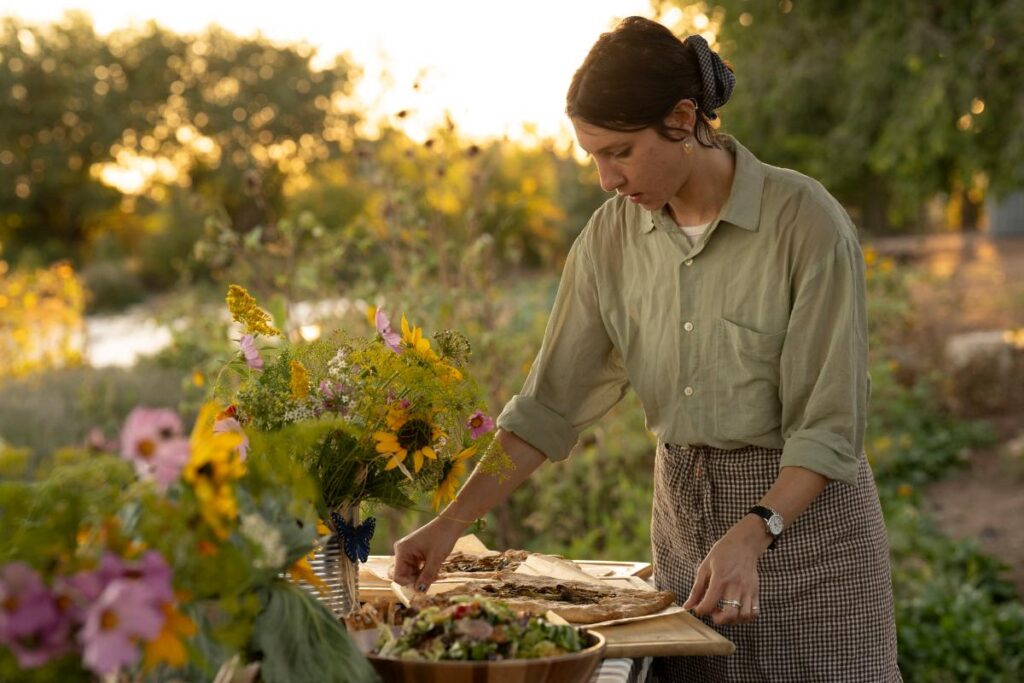
The next step was to start their own farm. And to grow food to sell at their seasonal farm stall or to donate to local residents and organizations. As they’ve grown, so have the number of people who work at Reunity, especially seasonal summer workers and volunteers. Some keep busy in the fields or manning the farm stall. Others work with the kids who come to their summer camp. Throughout, there is an energy and camaraderie amongst them.
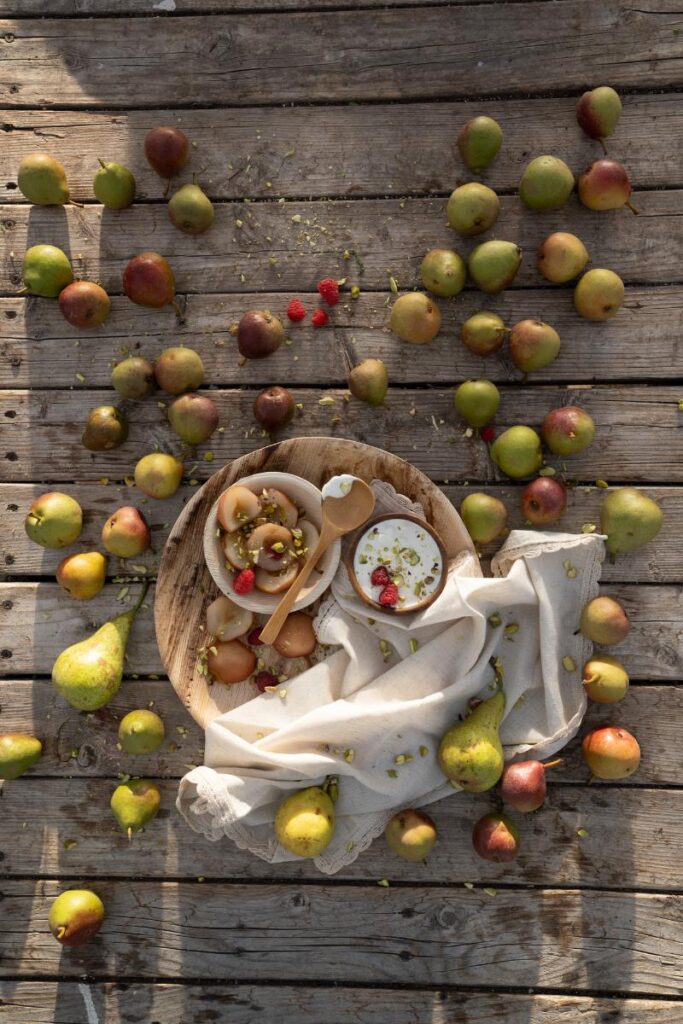
A Closed Loop System
The idea at Reunity, Juliana says, is to create a ‘closed loop system’. She gives me an example: “I eat a banana, I compost the banana peel. I put the compost on my garden or farm and I grow carrots in it. And the banana doesn’t really go anywhere, it just transforms, right?” It’s a simple idea but the sheer numbers are staggering. Each year Reunity Resources takes in about 1.5 million pounds of food waste, 3 million of wood waste, about a million of manure, and 350,000 pounds of used cooking oil. Annually, almost 6 million pounds of waste becomes enough compost to cover over 35 acres with an inch of compost.
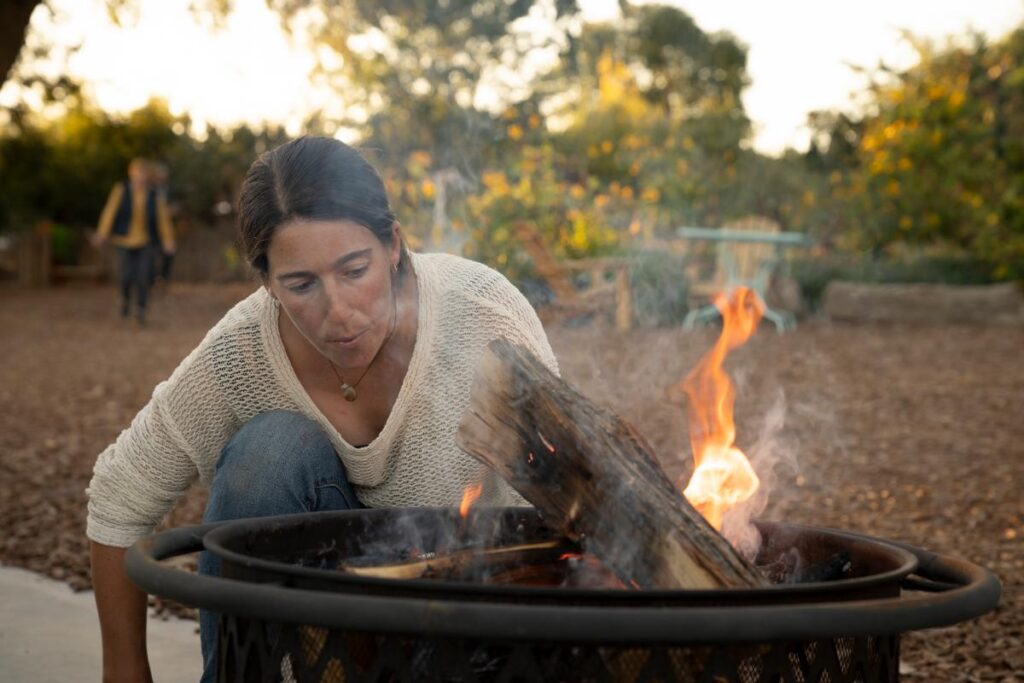
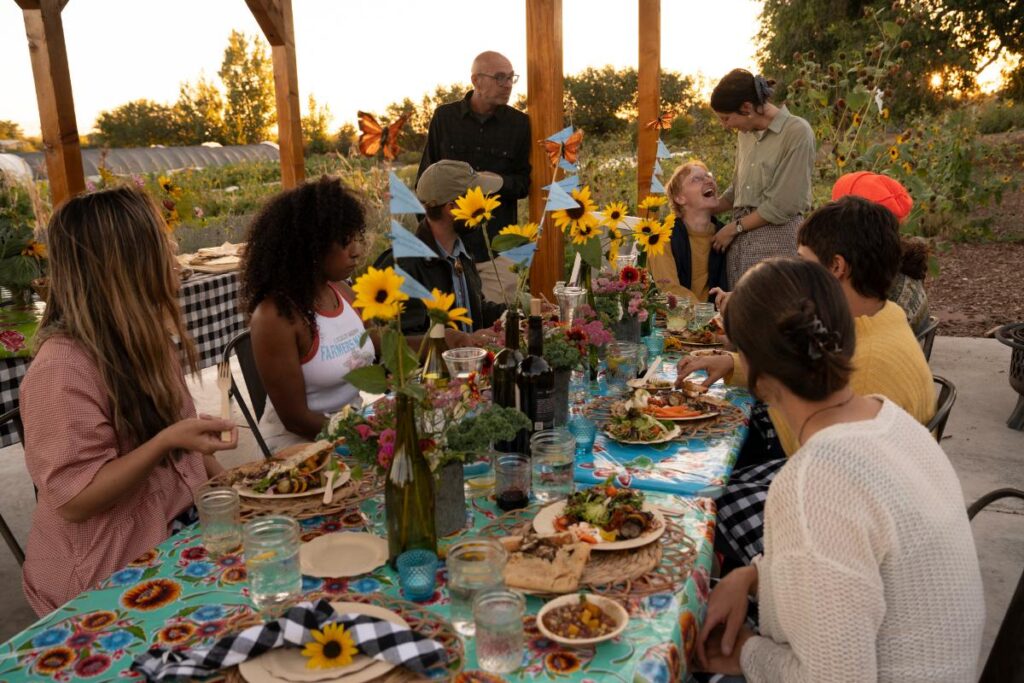
At the dinner to celebrate the end of the growing season, you could see the farm’s ethos clearly on the plate. A charcuterie platter showcases ferments and dips made with blemished or misshapen produce. Juliana calls it a “vegetable triage system” – as they work tirelessly to figure out how to use as much as they can and discard as little as possible. “How do we honor the human labor, the offering of the land, and the water that produced all this food?” she asks.
What Do You Do With an Imperfect Tomato?
Produce that might not be suitable to sell – say a bruised tomato – finds life as tomato sauce made onsite. “A perfect tomato is perfect and everybody loves a perfect tomato. But we can see every single day on the farm that there are a gazillion not-perfect tomatoes, but they’ve been grown with the same care, love, labor, and nutrients from the soil and water, right?”
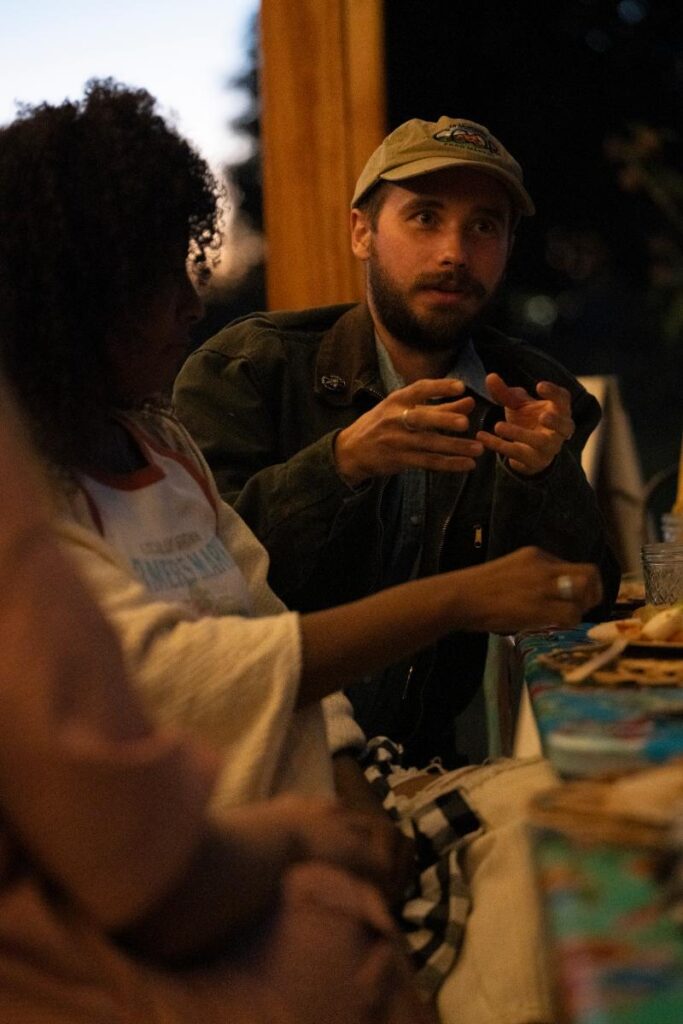
In the skillful hands of Lucia Maher-Tatar, who prepared the feast, the meal reflected the bounty of the late season harvest in New Mexico, from sun-ripened eggplant for the ratatouille, to pears, gently poached and then served simply with generous dollops of crème fraîche and a dusting of New Mexico pistachios.
Beyond the Wildest Dreams
As the sun started to set and goodbyes were shared, it was clear that everyone present felt they were part of something important … something that mattered. And, also how far Reunity has come, since the early days when they only recycled cooking oil. “It’s amazing,” Juliana says. “You know, it’s beyond our wildest dreams.”
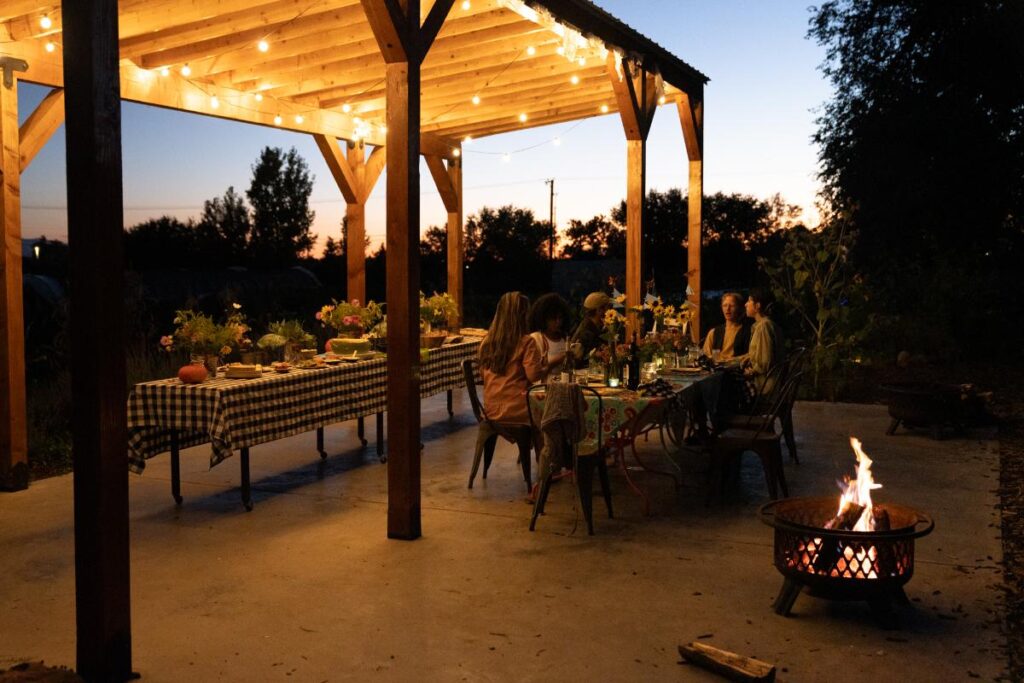
Recent federal funding cuts are jeopardizing several programs at Reunity Resources including vital community food access and educational programs. To support their work, you can donate at reunityresources.com.
What They Ate:
The fruits of the farm were in the capable hands of Lucia Maher-Tatar who prepared a vegetarian feast. She let the ingredients shine – nothing tricksy or ‘cheffie’. It’s part of her approach to food and cooking. “The closer the food is to the earth and the place that it came from, the more I want to let it speak for itself,” she says.
The privilege of working with just-picked produce is not lost on her. “It was this undeniable honor that happens where I had the space and familiarity of the farm to be able to go down and be like, I actually need another tomato, so I’m going to the field and get one,” she says. Maher-Tatar was aware that people who sat at the table were the same ones who had planted the seeds, weeded the beds, and harvested the food. “I have no interest in taking the thing they cultivated and grew and turning it into something else.”
Salad Toss
The freshest, most lovely lettuces and vegetables are placed into a parachute (aka a clean tablecloth) and then given a gentle ‘toss’. It’s a favorite activity at the Reunity Resources Summer Camp and equally popular with the adults.
Vegetable Charcuterie Platter
A board that is overflowing with fresh and fermented vegetables, hummus, and feta dip.
Ratatouille
Layers of squash and tomatoes with a generous glug of olive oil for a taste of Provence in Santa Fe.
Seared Leek Galette
Buttery pastry topped with just-picked leeks that are seared for a hint of char and smoke.
Focaccia
Studded with herbs, a sprinkle of sea salt, and served hot from the oven.
Squash Soup
A true taste of autumn, made with a mix of squash and beans and then served in a hollowed-out winter squash.
Poached Pears with Crème Fraîche
Pears from the farm are gently poached then topped with chopped pistachios for color and crunch.
Story by Julia Platt Leonard
Photography by Esha Chiocchio
Production and Styling by Parasol Productions
Shot on Location at Reunity Resources
Subscribe to TABLE Magazine’s print edition.
